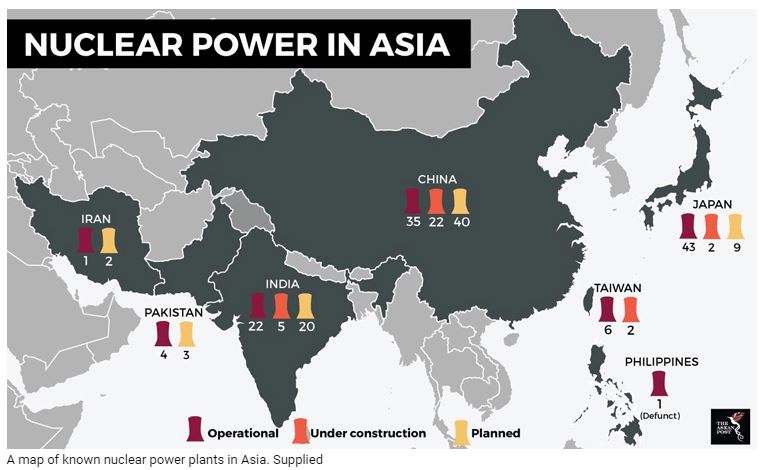Cambodia: Kingdom has ‘no nuclear plans until 2040’
Cambodia has no ambitious plan for a civil nuclear power programme for its power master plan within the next 20 years, official sources said yesterday.
A draft atomic energy law is now being drafted, which will include nuclear radiation, has reached 55 percent completion, says Victor Jona, director-general of energy at the Ministry of Mines and Energy.
He told Khmer Times that the draft law could be finalised before 2023. “However, there is still more works that needs to be done, which means that once it is finalised, the draft law has to be reviewed by relevant ministries ahead of any move to the next stage before it passes into law.”
He noted that the draft law is being assisted by the International Atomic Energy Agency (IAEA), the world’s centre for cooperation in the nuclear field – promoting the safe, secure and peaceful use of nuclear technology.
In bilateral talks between Prime Minister Hun Sen and an IAEA representative in 2014, Mr Hun said there would be no nuclear power development in the Kingdom. However, he did want the IAEA to help develop human resources and any draft laws relevant to nuclear technologies, especially in agriculture and the health sector.
“From now until 2040, we don’t have any plans for any civil nuclear power plant investments. Regarding whether or not we will need nuclear power to generate electricity after 2040, this will depend on current global trends,” Jona said.
He added that for the next 20 years, the potential sources for the electricity generation are coal, water, solar, wind and liquefied natural gas.
In 2016, Cambodia and Russia signed a memorandum of understanding in which Russia agreed to create the Nuclear Science and Technology Centre in the Kingdom. A year later, Cambodia and China also inked an agreement regarding nuclear energy cooperation.
Jona said after the agreement was signed, it paved the way for Cambodia to develop human resources in nuclear science and technology, allowing Cambodia official experts and some university students to get short-term training in the two countries. Regarding the Nuclear Science and Technology Centre establishment backed by Russia, he noted it may happen in the future. “To research nuclear science, we need a laboratory so this may happen in the future,” he said. A pre-feasibility study on the establishment of a nuclear power plant in Asean published by the ASEAN Centre for Energy said that the region could have its first operational civilian nuclear power plant by 2030 and perhaps two more by 2035.
According to studies, Indonesia, Malaysia, Vietnam, Thailand and the Philippines have been identified as frontrunners in the race to establish civilian nuclear power programmes in the region, explaining that these countries have advanced legal and regulatory frameworks, nuclear energy infrastructures and the required human resources. Cambodia’s total power supply generation increased from 2,635 megaWatts (mW) in 2018 to 3,382 mW in 2019, a 28 percent year-on-year increase.
It comprised about 33 percent from hydropower dams, 33 percent through coal-fired plants, 25 percent in imports from Thailand, Vietnam, and Laos, 7 percent from biomass and 1.3 percent from renewable sources such as wind and solar.
Source: https://www.khmertimeskh.com/50735632/kingdom-has-no-nuclear-plans-until-2040/


 Thailand
Thailand




